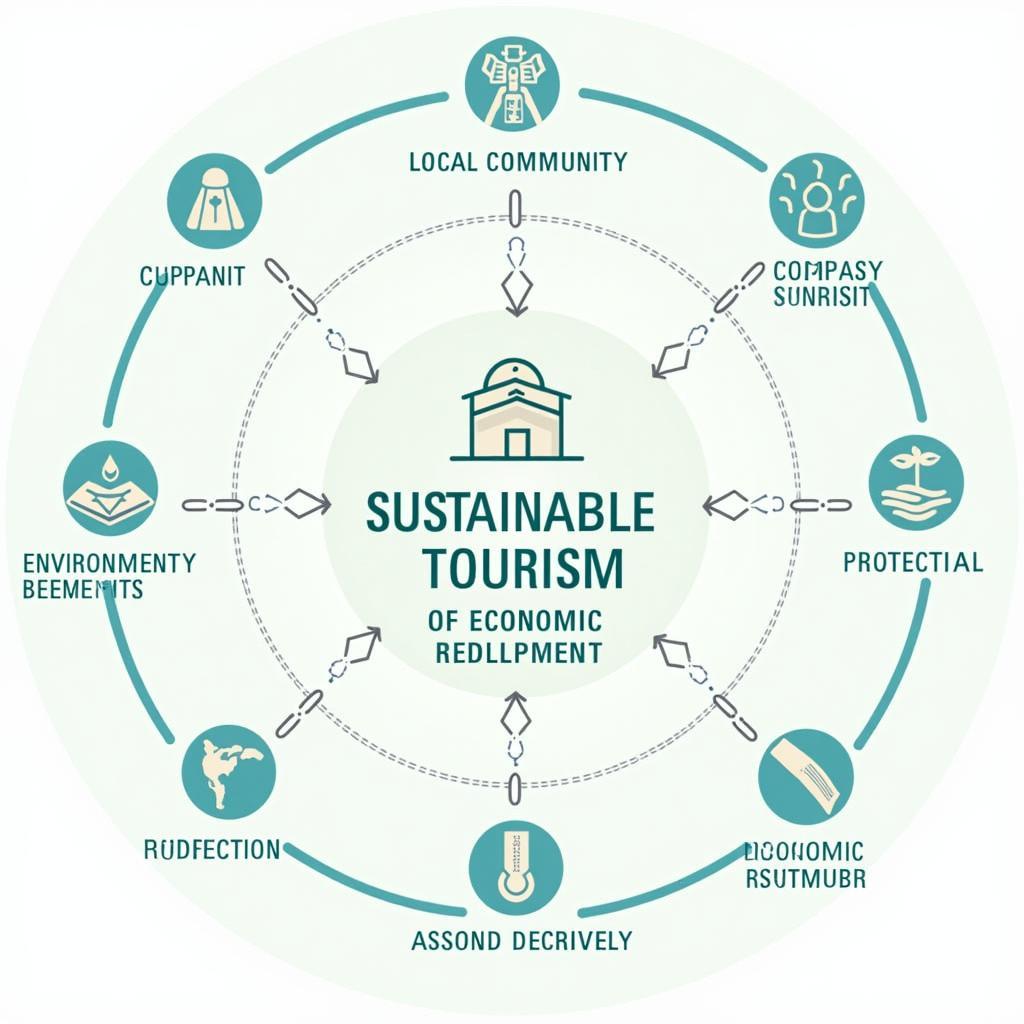Tourism sustainability has become an increasingly common topic in IELTS Writing Task 2, appearing in approximately 15% of recent exam questions. Understanding the importance of sustainable tourism is crucial for test-takers, as it combines environmental, economic, and social aspects that examiners frequently assess.

Sample Question Analysis
Some people believe that the development of sustainable tourism is essential for a country’s economic growth. To what extent do you agree or disagree with this statement?
This question requires candidates to evaluate the relationship between sustainable tourism and economic development, providing a clear position supported by relevant examples and explanations.
Band 8-9 Sample Essay
Tourism that prioritizes environmental protection while fostering economic growth has become increasingly vital for many nations’ development strategies. I strongly agree that the importance of ethical tourism practices is fundamental to sustainable economic growth.
Sustainable tourism significantly contributes to economic development through multiple channels. Firstly, it creates long-term employment opportunities in various sectors, from hospitality to local crafts, ensuring consistent income for communities. For instance, in Bhutan, the controlled tourism policy has successfully generated steady revenue while preserving cultural heritage and natural resources. Additionally, sustainable tourism practices encourage infrastructure development that benefits both tourists and locals, such as improved transportation systems and sustainable energy solutions.
Moreover, cultural tourism impacts on local communities extend beyond immediate economic benefits. When properly managed, tourism can preserve traditional customs while creating economic opportunities. For example, indigenous communities in Peru have developed eco-lodges that protect the Amazon rainforest while providing sustainable income sources. This approach ensures both environmental conservation and economic stability.
However, the success of sustainable tourism requires careful planning and implementation. Governments must establish robust regulatory frameworks to prevent over-tourism and environmental degradation. Countries like New Zealand have demonstrated how strict environmental guidelines can enhance rather than hinder tourism appeal, ultimately contributing to long-term economic sustainability.
In conclusion, sustainable tourism is indeed crucial for economic development, providing both immediate benefits and long-term growth potential while preserving natural and cultural resources for future generations.
Band 6-7 Sample Essay
I agree that sustainable tourism plays an important role in economic development. This essay will discuss the main reasons why sustainable tourism helps countries grow economically.
The first reason is that sustainable tourism creates jobs and income for local people. When tourists visit places that practice sustainable tourism, they often stay in local hotels and buy local products. For example, in Thailand, many small villages have developed homestay programs that give tourists authentic experiences while providing income for residents.
The effects of space tourism on the economy show how new forms of tourism can boost development. Similarly, sustainable tourism helps protect natural resources while making money. Many countries can attract tourists by keeping their environments clean and beautiful. This helps them make money now and in the future.
However, there are some challenges. Countries need to spend money to develop sustainable tourism facilities and train workers. They also need good rules to make sure tourism doesn’t damage the environment.
In conclusion, I believe sustainable tourism is very important for economic growth because it creates jobs and protects resources for future use.
Key Vocabulary
- Sustainable (adj) /səˈsteɪnəbl/ – able to continue over time without damaging the environment
- Infrastructure (n) /ˈɪnfrəstrʌktʃər/ – basic systems and services needed for a country or organization
- Indigenous (adj) /ɪnˈdɪdʒɪnəs/ – naturally existing in a place or country rather than arriving from another place
- Regulatory (adj) /ˈreɡjələtɔri/ – controlling or supervising through rules and regulations
- Over-tourism (n) /ˈəʊvə tʊərɪzəm/ – excessive tourism that negatively impacts local communities
For practice, try writing your own essay on this topic and share it in the comments section for feedback. Consider also exploring related topics such as importance of promoting sustainable tourism in developing nations.